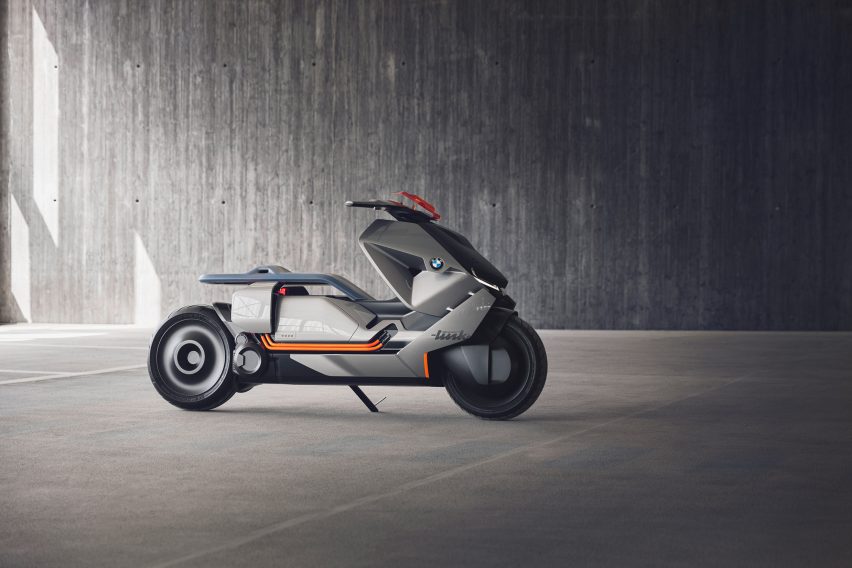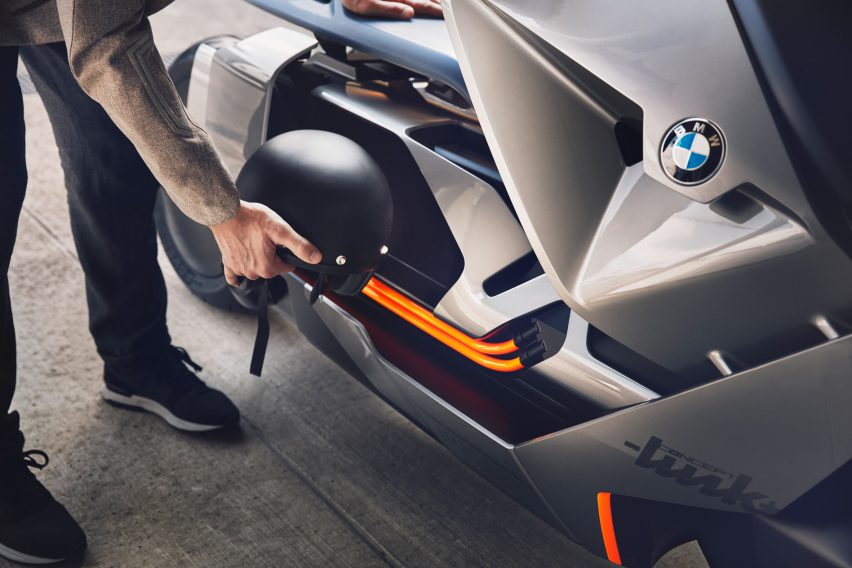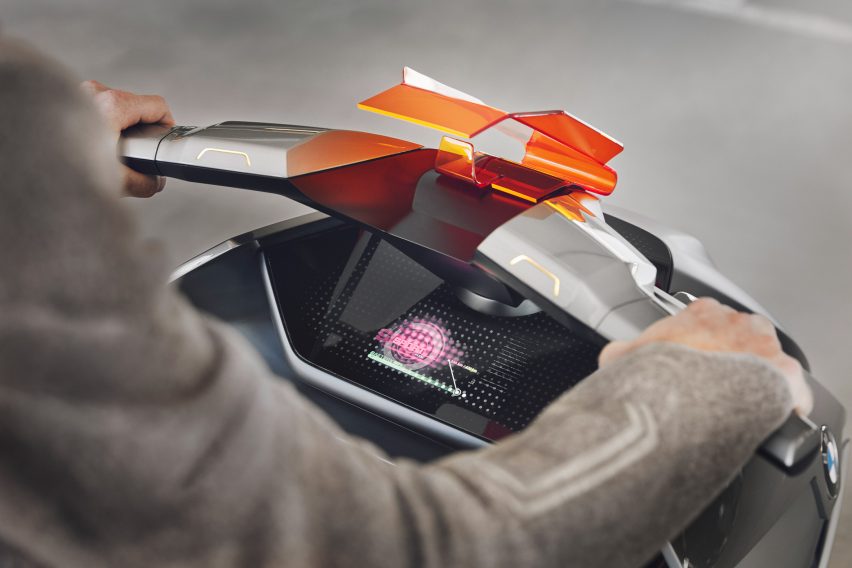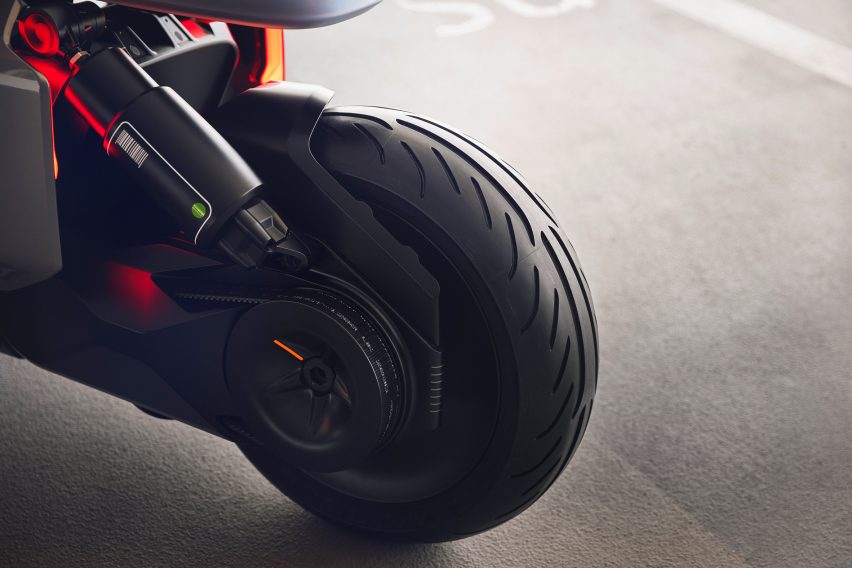BMW aims to "reinvent urban mobility" with connected scooter concept
BMW Motorrad's latest concept vehicle is a zero-emissions scooter that would make it easier for riders to get around cities.
The BMW Motorrad Concept Link was unveiled at the Concorso d'Eleganza Villa d'Este car event in Lake Como last week.
The company claims it will "reinvent urban mobility" by being both a connected device as well as a method of transport.

"The BMW Motorrad Concept Link stands for a new understanding of urban mobility," said BMW Motorrad's head of design Edgar Heinrich. "It links the digital and analogue world and places the focus on the rider and his mobility needs."
Equipped with smart functionalities, the two-wheeled vehicle can link up to the rider's calendar – enabling it to ascertain the location of any future events and plot the best routes in advance.
The rider's clothing would also interact with the vehicle, and as the rider swipes up their arm – a connected element of the jacket would open and close the sliding door of the luggage compartment.

The bike's design takes its cues from its electric technology, with a straight body formed around the flat battery packs that sit in the underfloor.
At the same time, screens and dials are minimised. An orange-coloured windshield is used to display speed, navigation and battery information in the rider's line of vision, while a second information panel placed between the handlebars shows a map.
Displays can be changed by touching buttons on the handlebars, meaning that the rider doesn't need to take their hands off at any point during the journey.

The seat bench can be adjusted to suit different riding postures and also provides a storage section for transporting small items.
The designers focused on creating a vehicle that would highlight its electric drive. Technology has been "deliberately showcased", with incomplete side panels allowing views of the bike's internal elements.

"The BMW Motorrad Concept Link is not based on today's concepts, but rather meets the basic functionality needs, the technical architecture and the digital reality of today's users," said Alexander Buckan, head of vehicle design at BMW Motorrad.
"The technical realities of electric drive – such as the flat energy packs in the underfloor and the compact drive on the rear wheel – allowed us to create a highly distinctive design which shapes a new segment."
BMW Motorrad is German company BMW's motorcycle division. Its last two-wheeled concept vehicle claimed to make accidents "a thing of the past", and incorporated a self-balancing system that keeps the bike upright.
BMW, which ranked at number 67 on the inaugural Dezeen hot list, has stayed ahead of the curve by embracing hybrid and electric technologies with innovations such as the i8 sports car, while also revealing impressive concept vehicles such as a shape-shifting car that can predict your every move.
Although the BMW Motorrad Concept Link isn't self-driving, board director Peter Schwarzenbauer told Dezeen earlier this year that the company was focusing on autonomous technology, as well as working with psychologists to overcome human resistance to the notion of being inside a robot.